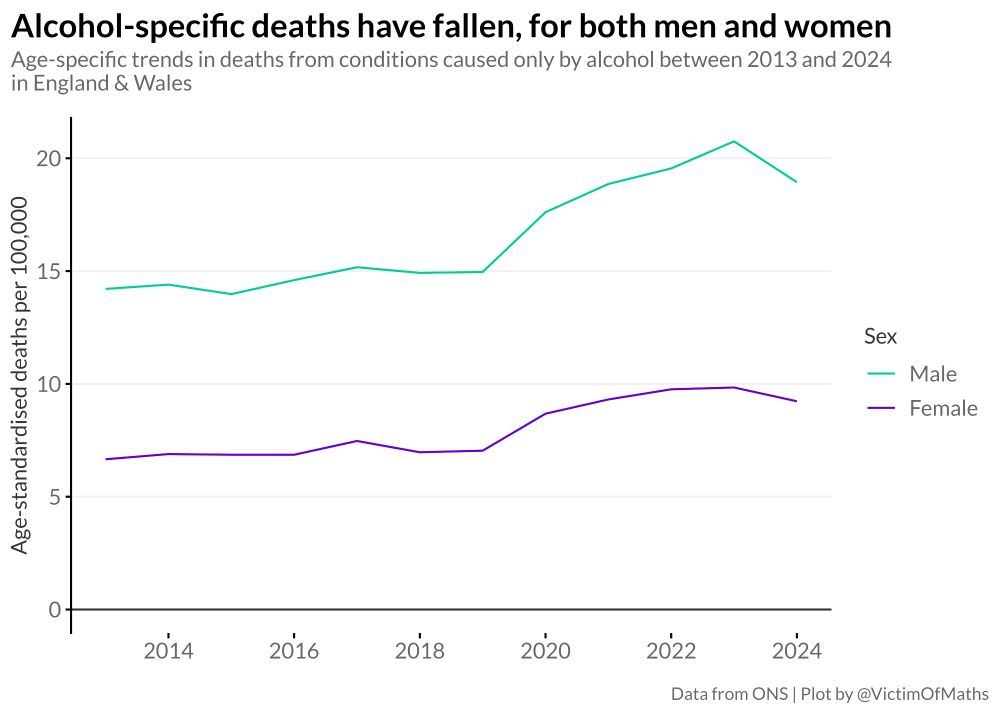


Looking at total receipts, they were falling well before the reforms came in in August 2023.

Looking at total receipts, they were falling well before the reforms came in in August 2023.
As a result alcohol is *more* affordable now.

As a result alcohol is *more* affordable now.


These two show the important of accounting for inflation - in cash terms alcohol duty rates are higher than ever before, but in real terms they are at historically low levels.


These two show the important of accounting for inflation - in cash terms alcohol duty rates are higher than ever before, but in real terms they are at historically low levels.
Beer has got slightly more expensive in real terms since the end of 2022, but wine and spirits remain at late 2022 prices.

Beer has got slightly more expensive in real terms since the end of 2022, but wine and spirits remain at late 2022 prices.
Although, maybe there's a slight concern about the oldest (75+) age groups where the trends look less positive.

Although, maybe there's a slight concern about the oldest (75+) age groups where the trends look less positive.


This is the first fall since 2018, and is certainly good news, but the no. of people who sadly died from these causes in 2024 is still 1/3 higher than 2019

This is the first fall since 2018, and is certainly good news, but the no. of people who sadly died from these causes in 2024 is still 1/3 higher than 2019

Nice to find a good news story in this data for a change.

Nice to find a good news story in this data for a change.



The logic of how liberalising licensing for both pubs and shops will help pubs is a mystery to me.

The logic of how liberalising licensing for both pubs and shops will help pubs is a mystery to me.



sarg-sheffield.ac.uk/wp-content/u...



sarg-sheffield.ac.uk/wp-content/u...
As much as the population rates are similar for both causes, the age patterns are *very* different, with drug deaths peaking in the 40s and alcohol deaths in the 60s.

As much as the population rates are similar for both causes, the age patterns are *very* different, with drug deaths peaking in the 40s and alcohol deaths in the 60s.



Deaths have been rising in these groups since the early 2010s, so it's good to see that trend reversed.

Deaths have been rising in these groups since the early 2010s, so it's good to see that trend reversed.

